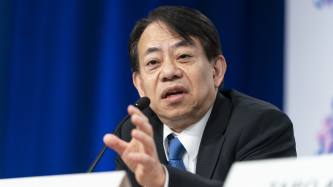The Li family-controlled bank has 20 outlets on the mainland, one of the most extensive networks for a foreign bank, with an emphasis on the Pearl River Delta and on a number of China’s major cities. It is also on the acquisition trail.
“We are looking for a smaller bank with which to establish a long-term relationship on an exclusive basis. We would like to have a 20% interest, together with a friend who is in insurance, so [the total stake] would be higher,” says David Li, the outspoken chairman and chief executive of the BEA Group.
He expresses scepticism about what other banks are up to. “I don’t know the reason why banks are going for 5%-10% of those banks. They have no exclusivity as their competitor banks are going in,” he says.
Bank of America bought a 9% stake in China Construction Bank in June and Temasek, the Singapore state investment company with holdings in a number of banks in the region, pledged to buy a 5% stake. China’s biggest lender, Industrial and Commercial Bank of China, is selling a 10% stake to Goldman Sachs, insurer Allianz and American Express.
About two thirds of BEA’s profits come from Hong Kong, although much of this is China-related, such as fees from Chinese company initial public offerings in Hong Kong or loans to Chinese companies with operations in Hong Kong. BEA’s international operations posted a 60% rise in profits. The bank has long-standing banking business in countries where there are large overseas Chinese communities, such as Canada and the UK.
The bank posted a 4.9% rise in first half operating income to HK$2.75bn ($354m). It suffered from a rise in costs but expects to lower its 51% cost/income ratio to 42% within the next 18 months through moving some back-office operations to the mainland and the efficiencies of a recent centralisation project.
Mr Li expects to see consolidation in the Hong Kong banking sector. “All the banks are looking at each other,” he says. “I think we will see some action in the next 18 months.”
Local bankers are divided in their opinions about which banks are up for sale. BEA, Hong Kong’s third largest, and Wing Hang Bank, the sixth largest, are among those mentioned.
Standard Chartered has been mooted as a buyer. Standard Chartered’s Mr Hung says: “The core part of the strategy in Hong Kong is organic. But we are open to these options. There are probably more banks than you would find in a typical country like Hong Kong.”











